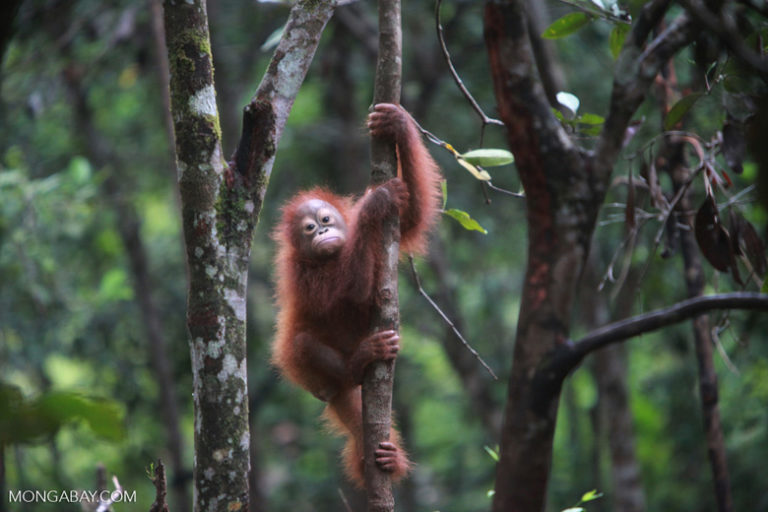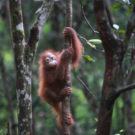Slowing the pace of mass extinctions and the climate crisis requires that nature be protected. But when it comes to protected areas, some have argued that safeguarding one area can…
An environmental report has revealed the Malaysian royal family is requesting permission from the Department of Environment for a new iron ore mine in the middle of one of the…
A hundred and ninety-six trees per minute. That’s how fast the forest was being cleared in Brazil’s Xingu River Basin between March and April this year. A total of 29,191…
In 2006, the world's leading hummingbird photographer, Luis Mazariegos, visited La Mesenia, an isolated village in Colombia’s western Andes. He had no idea that besides taking a picture of the…
Southeast Asia is home to roughly half of the world’s tropical mountain forests. These highland ecosystems support massive carbon stores and tremendous biodiversity, including a host of species that occur…
A 20-year analysis of satellite data shows significant temperature differences in agricultural lands in southern Amazonia, depending on farm size.
Legal mining in Colombia is a significant driver of deforestation, contributing to the destruction of 121,819 hectares (301,021 acres) of forest from 2001 to 2018. During that time, deforestation from…
The asteroid impact 66 million years ago that killed more than 75% of all species on Earth, including all non-avian dinosaurs, triggered an ecological catastrophe that took the neotropical rainforests…
Nature-based solutions to tackle the climate crisis, specifically through the global carbon market, are attracting major public and private investment. Yet, according to new research by the NGO Rights and…
Today we discuss newly released data for 2020 that shows an increase in deforestation even as efforts to replant forests are sprouting up all over the world. Listen here: Mongabay…
JAKARTA — Lawmakers in Indonesia have expressed shock — shock! — that a controversial bill they passed into law last year amid near-universal criticism legitimizes illegal deforestation for oil palm…
JAKARTA — Indonesia has laid out an ambitious plan to tackle deforestation, the main factor contributing to the country being one of the top global greenhouse gas emitters. But experts…
In a ruling that could strengthen Indigenous land rights claims across Brazil, the nation’s Supreme Court has sided with the Guarani Kaiowá, allowing the possible reopening of a case involving their territory claim.
As Earth continues to lose forests and biodiversity, many have called for an expansion of protected areas. But protected status is not a silver bullet. Designating land as a protected…
JAKARTA — After halting forest-clearing operations in 2020, the Digoel Agri conglomerate has apparently restarted its activities in Indonesia’s Papua province, raising alarms among local Indigenous communities who say they…
In the midst of political chaos fomented by a Feb. 1 military coup of the government in Myanmar, the country's forestry sector is seeking legitimization from the international community. A…
Environmental monitoring and firefighting saw budgets cut by over a third in two years; agencies endured massive deregulation, with nearly 600 rule changes aimed at undermining conservation, say critics.
This article was co-produced with The Gecko Project. JAKARTA — Indigenous people in Indonesia’s easternmost Papua province are protesting against a company that’s preparing to raze their ancestral forest for…
MINDANAO, Philippines — Efforts to conserve the critically endangered Philippine eagle, one of the rarest raptors in the world, soared high even amid the COVID-19 pandemic. Despite the global havoc…
In his homeland, Norwegian social geographer Torkjell Leira is known as a leading expert on Brazil. After coming to the country as an exchange student some 30 years ago, he…
An innovative collaborative group is working to restore Brazil’s savanna by sowing native plant seeds on degraded agricultural lands; it’s an effort that’s working, say participants.
COLOMBO — With a single notification, Sri Lankan authorities have recently transferred the guardianship of forests lying outside protected areas to local administrators, with a view to increasing the island’s…
Major roadbuilding, including the “reconstruction” of the BR-319 highway, now threatens the Brazilian Amazon’s last, vast intact rainforest, vital to Brazilian ecosystem services.
Almost a fifth of Brazil’s soy and grains already flow down Amazonia’s rivers. Now a boom in private river port construction, with little government oversight, further threatens the region’s waterways.
Some of the world’s biggest banks have invested US$153.2 billion in forest-risk companies in Brazil, Southeast Asia, and Central and West Africa since the Paris Climate Agreement was signed in 2016.
The reconstruction of the BR-319 highway — a north-south cut through what remains of Brazil’s Amazon forest — is being fast tracked by Pres. Bolsonaro, but the project risks huge socio-environmental impacts.
JAKARTA — Pulp and paper giant Asia Pacific Resources International Holdings Limited (APRIL) has allegedly violated its own sustainability commitment by purchasing wood from a company clearing rainforest in Indonesian…
A new tiny orchid species with fiery orange flowers has been discovered on a mountain peak in the northern Philippines’ Cordilleras range. The wild orchid species was named Dendrochilum ignisiflorum…
In 2009, traditional Brazilian Amazon communities and Catholic nuns brought the transnational mining company to the negotiating table and galvanized Amazonia’s land rights struggle.
Humans have not treaded lightly on the Earth. Over the centuries, we have left our mark on almost every ecosystem, contributing to a steady, and increasingly rapid, decline in the…



























































